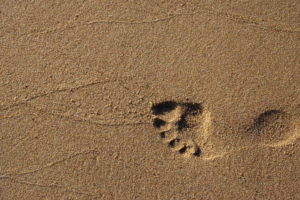Vegan challenges like Veganuary and Challenge-22 give people a chance to try veganism and experience how easy and enjoyable it can be.
But what does it take to make a long-term change of habits we’ve held for a lifetime and become vegan?
Knowledge
First, if you haven’t yet, be sure to learn the truth about animal industries. Films like Dominion and Earthlings are hard to watch, but facing the reality of animal exploitation can reinforce our choice to stop contributing to it. The strong images in these films often make a lasting impression.
Second, it’s necessary to find alternatives for your food, clothing, hygiene and entertainment as you replace old items and habits. Of course, internet searches can provide lists of vegan products. I recommend joining a local vegan group via social media where members share local resources. Online, Crueltyfreekitty.com has information on vegan personal care items.
Finally, make sure you follow a nutritious diet so that you feel great physically as a vegan. If necessary, consult a vegan registered dietician if you can, or look for books and blogs by accredited vegan professionals. Virginia Messina, MPH, RD has an excellent website and blog at theveganrd.com.
Mindfulness
Once you’ve committed to being vegan, it can take some time to adjust habits like reading ingredient lists before making a purchase. Maybe draw a big V on your hand that you’ll see as you reach for a product. The first few grocery shops will take a bit longer, but you’ll soon have a list of trusted items and won’t have to do the work each shop. You may have a lot of “oh wait” moments, like when someone offers you a muffin or invites you to the aquarium. With a bit of extra consciousness, you will form new habits and your veganism will be second nature to you in the long term.
Enjoyment and peace
Find new recipes, new restaurants, and make connections with local vegans. So many new vegans speak about how much more they enjoy food. And take time to notice how much better you feel in your heart because you’re living in accordance with your values. Don’t be fooled by the many superficial models of veganism that will promote a vegan diet as a miracle cure, fountain of youth or easy weight loss solution. Remember that veganism isn’t a diet. It’s an ethical view and practice.
Mentorship and role models
Stay connected to those who first encouraged you towards veganism or continue returning to the sources that you first used when learning about veganism. Connect to your local outreach and activism groups for more support. Look for local meet-ups, such as Meatless Meet-up. There might be virtual meet-ups in your community. Be sure to discuss vegan ethics and arguments in these groups where you will be supported and not isolated.
Ethics and logic
Stay focused on the ethical reasons for veganism. Remember that your pleasure and convenience aren’t worth compromising your values. Remember that with each meal or purchase, you are making a difference. I suggest writing down your own beliefs and ethical stances so you can return to them for reinforcement. Start with your understanding of animal exploitation and why it’s wrong. I have turned to Earthling Ed’s free book 30 Non-Vegan Excuses and How to Respond to Them in order to prepare for questions others ask about veganism.
A key factor that keeps vegans vegan is a strong ethical foundation. Once you’ve developed yours, there is no other choice but to stay vegan.
Resources
https://veganuary.com/register/
https://challenge22.com/
https://www.dominionmovement.com/
https://www.youtube.com/watch?v=Go8TH2yzUKE Joaquin Phoenix for LCA: Stop Animal Cruelty at ITR Labs.
https://www.crueltyfreekitty.com/
https://www.theveganrd.com/
https://earthlinged.org/ebook Free e-book countering excuses from non-vegans.
Photo by Andre Furtado from Pexels








